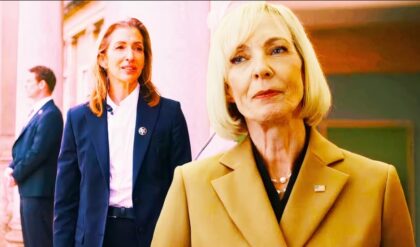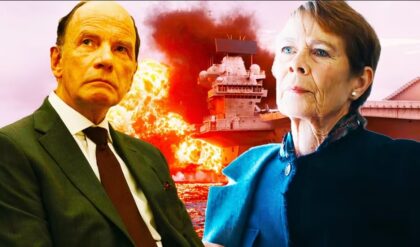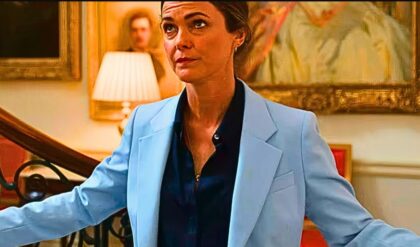
No Rest For The Wicked developer Thomas Mahler shared his prediction that AAA video game developers will continue to struggle and he explained why he believes it.
A screenshot from No Rest for the Wicked (2024), Moon Studios GmbH
In a post to X, Mahler stated, “It is absolutely not a surprise to me that a lot of AAA studios have been struggling lately and my prediction is that it won’t really get better any time soon.”
He then explained, “I know it sounds absurd, but most of the games studios out there that hit it big were at one point just a small group of passionate folks that wanted to make games together. In a lot of cases they were just friends. And if they were lucky, they found out in the process that they actually make a great team together.”
“Then the games they created struck a chord and now they scale up and become a massive studio,” Mahler elaborated. “And then lots of other folks come in and demand this and that and unknowingly change the culture and the approach and then we suddenly wonder what happened to this or that great studio that always delivered in the past once they’re not delivering the same quality products anymore, even though EVERYTHING changed in their approach to making games.”

A screenshot from No Rest for the Wicked (2024), Moon Studios GmbH
Next, he made an analogy to the Beatles, “I’ve compared companies to bands in the past because I think that analogy helps a lot of people understand that we’re really dealing with the same issues here: Take the Beatles, they become successful, but now their record company tells John, Paul, Ringo and George how they should write their songs and – by the way – now they should also hire Lisa, Steward, Shane and Mary and have them be part of the songwriting team so they can produce more stuff and of course these new folks should have the same say because otherwise we might just face diversity issues – does anybody really think we would’ve gotten the same output they had by doing it this way?”
“No, of course not. And it’s no different for games studios or any other group of talented people that produce art together,” he declared.
Mahler concluded, “You have to keep that magic alive that made it all work in the first place. We’re dealing with humans here and all too often the industry seems to forget that.”
This prediction and his explanation comes in the wake of explaining why he agrees with Elon Musk that DEI kills art.
Mahler posted on X, “I never retweeted anything from Elon before because I’m a game designer, but I very much agree with this statement. The problem with DEI isn’t in its principle, but in the way it’s being implemented.”
“Years before DEI became a thing, we had Quentin Tarantino, a white director, make a movie about a badass black dude who buddied up with a white dude. My point being: Just let artists be artists and DEI will happen naturally,” he said. “Ultimately, a good message has to come from the heart and not from indoctrination.”
Mahler had also previously declared that Moon Studios does not force DEI into its games.
He wrote, “I’m still every now and then getting questions on whether we force DEI stuff into the games we’re making, so let me make it clear once and for all: Absolutely Not.”
“I find that entire approach perverted. I’m an artist, I would rather quit than have someone else tell me how we should do our art,” he explained. “That would make a mockery out of everything I believe in.”

A screenshot from No Rest for the Wicked (2024), Moon Studios GmbH
Mahler continued, “I’ve been very much outspoken on on how I feel about consulting and I still very strongly feel that if people haven’t lived the process and don’t have to think about the issues at hand 24/7, they will always deliver worse work than those who do. When it comes to the stories we’re telling, I always approach it from a human angle first and foremost and let the story tell me where it needs to go.”
“If it tickles me to have a gay character in our story and I feel like that character could be fascinating then I will push for that. But I would NEVER make a character gay simply because some outside party told me that it’s hip to do so and that we might face backlash if we don’t,” he shared. “Art fundamentally doesn’t work that way.”

A screenshot from No Rest for the Wicked (2024), Moon Studios GmbH
“Everyone has stories inside of them that are based on the experiences that they went through in their lives and to me what elevates art beyond just craft is when you’ve reflected enough to know who you are and then let those stories out because those experiences that you lived through are most likely experiences that other people can relate to that will speak to them in a profound manner.” he wrote. “Because they’re real.”
“Ori and the Blind Forest in many ways was about me reflecting on what it was like to see my father dying of cancer when I was 10 and being grateful to my mom,” he shared. “Wisps on the other hand was written when we all started to have kids in the studio and imagining what it would be like to have a kid with a disability.”
Ori and the Blind Forest (2015), Moon Studios
“I wrote the first draft of No Rest for the Wicked quite some time ago and that also came from a very specific place,” he added.
Mahler then concluded, “I hope that clarifies it for everybody. I’ve had to learn the hard way what it means to be an artist and I’d never let anyone take that away from me.”
What do you make of Mahler’s prediction?
News
What Was With The Blood In The Diplomat Season 2?
One scene in The Diplomat season 2, episode 5 offhandedly mentions blood after Grace Penn’s arrival at Winfield House, covering a real-life practice of the Secret Service. The Diplomat starting with the attack against HMS Courageous meant the President and Vice President of the US both…
Why Kate Is Ready To Take The VP Position In The Diplomat Season 2 Ending Thoughtfully Detailed By Creator & Star
The Diplomat creator Debora Cahn and star Keri Russell have thoughtfully detailed why Kate is ready to take the Vice President position by the end of season 2. The Diplomat season 2 focused on Kate (Russell) trying to uncover who within the UK government…
Who Merritt Grove Is In The Diplomat & What He Wants
The Diplomat season 1 finale left viewers with uncertainty about who Merritt Grove is and what he wanted. Grove appeared halfway through the finale and only had brief on-screen appearances before an explosive closing scene. Grove was confirmed to be a former…
“That Final Scene!”: Stephen King Shares High Praise For Netflix Thriller
Stephen King shares praise for one of Netflix’s leading thrillers, particularly citing the show’s final scene. Netflix has assembled a few strong political dramas, which varyingly incroporate thrills. The Night Agent, one of Netflix’s biggest series, is a pure action thriller led…
The Diplomat Season 2 Completely Ignores A Massive Hal Wyler Twist From Season 1
The Diplomat season 1 introduced a huge storyline for Rufus Sewell’s Hal Wyler, but the latest run of the Netflix political drama makes absolutely no mention of the pivotal twist. By the end of The Diplomat season 2, Hal has apparently completely moved on from…
The Diplomat Season 2 Finale’s Huge Twist Was Foreshadowed Over 1 Year Ago And You Didn’t Notice It
The Diplomat season 2 finale had a very dramatic ending, and while some of it would have been almost impossible to predict, one moment was quietly teased in the Netflix political drama’s first outing back in 2023. The massive twist in The…
End of content
No more pages to load











